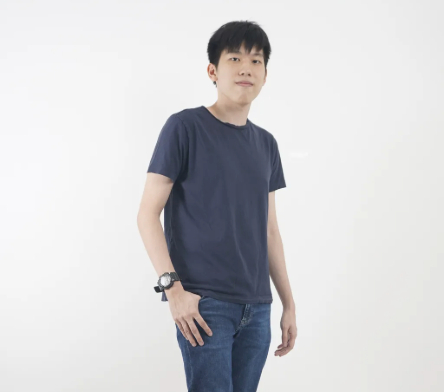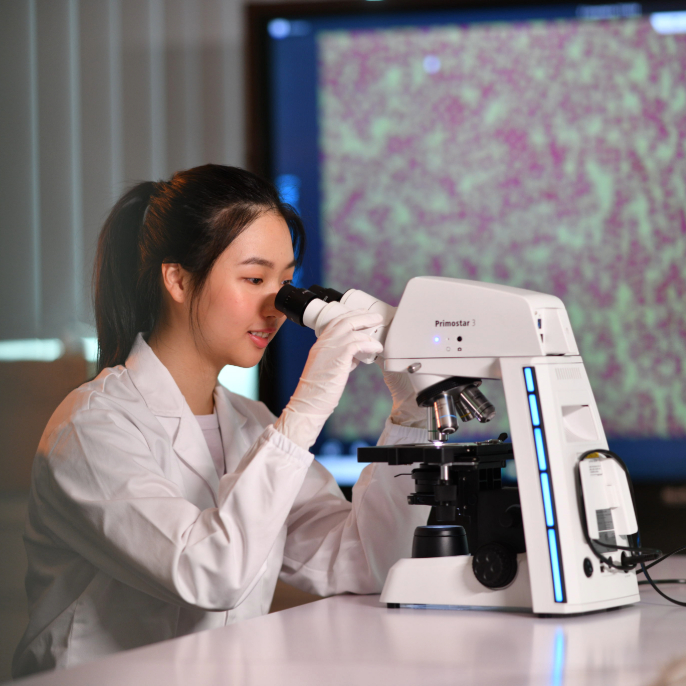If you're driven to impact healthcare and enjoy working in laboratories, the Diploma in Biomedical Science is for you. Ideal for those with strong problem-solving skills, logical thinking, and a curiosity for medical research, this course translate what you learn in theory into practical solutions for health. Gain hands-on experience and the confidence to tackle real-world health challenges. Start your biomedical science journey today.
In addition, you will graduate with a Minor upon the completion of a suite of related elective modules. SP offers 6 Minors for you to choose from:
Please note: Course structure is subject to change.
Electives
The SP elective framework offers students options to pursue their passion and/or meet different career needs, and is an integral part of the holistic education we seek to provide to our students.
Learn about SP Elective Framework
The Common Core Curriculum (CCC) prepares you for a changing world with essential human and digital skills. Through its 10 modules, the CCC also provides a wide learning experience to examine local and global issues based on the Sustainable Development Goals (SDGs). These modules help you understand real-world issues and the impact on different communities, and equip you with skills to create a better, sustainable Singapore and world.
Building the Foundations of Biomedical Science
In Year 1, you’ll start with the basics of biomedical science. Courses like Biochemistry & Cell Biology, Microbiology & Genetics, and Chemistry I & II will introduce you to key practices, terms, and software tools.
Specialisation in Biomedical Science
In Year 2, you’ll choose a specialisation: Medical Technology, Cardiac Technology, or Biotechnology. You’ll also work on personal branding and prepare for your internship. The Sustainable Innovation Project (SIP) will let you tackle real-world challenges with innovative solutions.
Specialisation in Medical Technology
Gain the skills to diagnose and manage human diseases by providing accurate and timely diagnosis with the use of medical technology.
Specialisation in Cardiac Technology
Pioneering Cardiac Technology education since 2000. Leading the way with Cardiac Technology in partnership with National Heart Centre (course endorsed by MOE since 1999).
Save human lives, test heart functions to diagnose and intervene in heart related diseases.
Specialisation in Biotechnology
Harness the power of biological processes to improve lives and contribute to advancements and innovations in medical research and drug development.
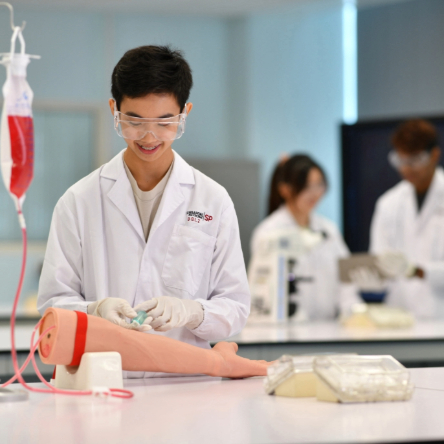
What are the eligibility requirements for biomedical science?
You must meet the following criteria to qualify for the Diploma in Biomedical Science:
If you're passionate about science and excel at problem-solving, the biomedical science course is perfect. You should have logical thinking, curiosity, a love for experimentation, and a drive to tackle challenges. Building on your O-level strengths in Biology, Chemistry, and Mathematics, you’ll use these traits to plan, execute and tackle complex projects to make a real-world impact in healthcare.
SP offers many scholarships to recognise talent and service, from Year 0 to after graduation. These scholarships provide tuition fee waivers and chances to represent SP. They are awarded for academic excellence, contributions to arts or sports, and community service. Edusave awards and external sponsorships are also available.
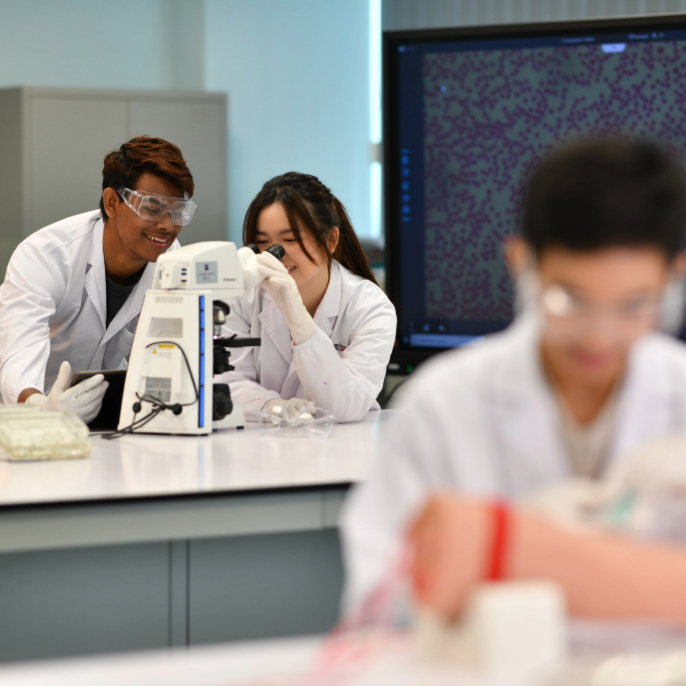
Biomedical science at SP prepares me for the future.
SP offers modern facilities to prepare you for a future in biomedical science. The Medical Technology Suite includes purpose-built labs for hands-on training and research in clinical chemistry, haematology, histotechnology, medical microbiology, immunology, and molecular diagnostics. These specialised facilities ensure you gain practical experience with the tools and techniques essential for success in medical research and healthcare.
Biomedical science at SP prepares me for Singapore.
Biomedical science offers vast opportunities in Singapore and the region, especially with Singapore positioned as a major biomedical sciences hub in Asia by the EDB. With a thriving biotech and healthcare sector, professionals in biomedical science are in high demand, both locally and globally. Whether in research, healthcare, or biotechnology, SP equips you for a career that directly impacts innovations and patient outcomes in this evolving healthcare industry.
Biomedical science at SP prepares me for the world.
Biomedical science covers several specialised fields. At SP, you can learn various specialisations:
These specialisations ensure you get practical training and experience to thrive in the biomedical industry.
SP students take on 26-week internships at various organisations, including startups, SMEs, MNCs, and government agencies. Biomedical science students have worked with top companies like A*STAR, Singapore General Hospital (SGH), Pfizer, Roche, Sanofi, and Thermo Fisher Scientific. Some interns have made big contributions, often outperforming university interns. Many were later offered roles like Research Assistant.
Internships offer networking, insights, and job opportunities, giving you real-world experience in your chosen field. SP enhances your confidence and employability through coaching. Multiple internships broaden your perspective, leading to informed career decisions, higher starting salaries, and business exposure. A good internship provides meaningful work, learning opportunities, and mentorship.
Overseas exposure helps broaden your horizons. Understanding globalisation and working with diverse cultures is important in a global city like Singapore. Biomedical science students and alumni have experienced international internships and exchanges, enriching their worldviews and career prospects. Students in other CCAs also have opportunities to represent Singapore abroad and gain international experience.
At SP, we understand the importance of a strong portfolio for success in competitive medical and healthcare careers. Our programmes take you from mastering the science of saving lives to becoming the professionals who do. Through hands-on experience in healthcare settings, job shadowing, and participation in prestigious competitions like the Young Scientist’s Symposium, the Anatomy Challenge, and international sustainability projects, you’ll gain essential skills and a passion for healthcare. These experiences will help you build a portfolio that demonstrates your expertise and readiness for interviews, preparing you for success in healthcare.
Graduates often further their studies in specialised or related fields. Here are common degrees:
Many graduates get into local universities and have the option to study fields such as Medicine, Dentistry, and Pharmacy. Some enter directly into the second or third year of degree programmes at international universities. For a comprehensive list of degree options and advanced standings, visit the Advanced Standing Database.
If you’re preparing for university and want to make the most of your diploma time, an SP diploma can let you fast-track your education by 0.5-2 years!

From Passion to Purpose: DBS Alumnus Kelsey Lim’s Journey of Discovery and Achievement in Biomedical Science Lim Si Hui Kelsey’s journey in DBS was a transformative experience. The hands-on laboratory sessions, reflecting real scientific cases, and the passion of her lecturers ignited her love for science and sharpened her analytical skills. Her internship at DSO National Laboratories further enriched her journey, applying her knowledge and building critical workplace skills.

My 2019 decision to pursue biomedical science through EAE exceeded my expectations in shaping my personal and professional growth. Passionate and knowledgeable lecturers made every session engaging, fostering my love for science. Clinical attachments at NHCS left a lasting impression, further enriching my experience. Looking back, choosing the DBS course was one of the best decisions I have made. It not only developed valuable skills but provided me with a sense of purpose and direction in life.
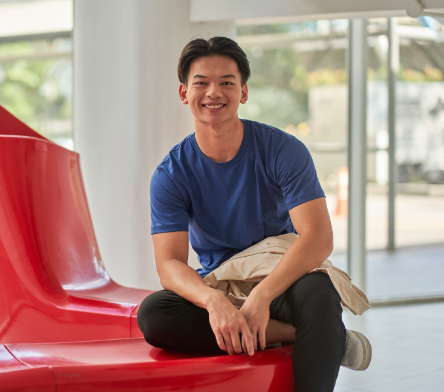
The course has given me a valuable glimpse into the biotechnology industry as well as the field of biomedical research. Additionally, the curriculum allowed me to hone my teamwork and communication skills as well as seamlessly apply what I have learnt in the classroom on research projects and internships. I am grateful for the opportunities given to me in this programme, and do not regret my decision to join the course via EAE back in 2018!

My time at SP was pivotal in shaping my biomedical science knowledge and professional growth. The comprehensive DBS curriculum and dedicated lecturers sharpened my critical thinking and research skills. Research attachments at the Singapore Immunology Network (A*STAR) deepened my expertise in bioinformatics and cancer theragnostics, solidifying my passion for the field.
